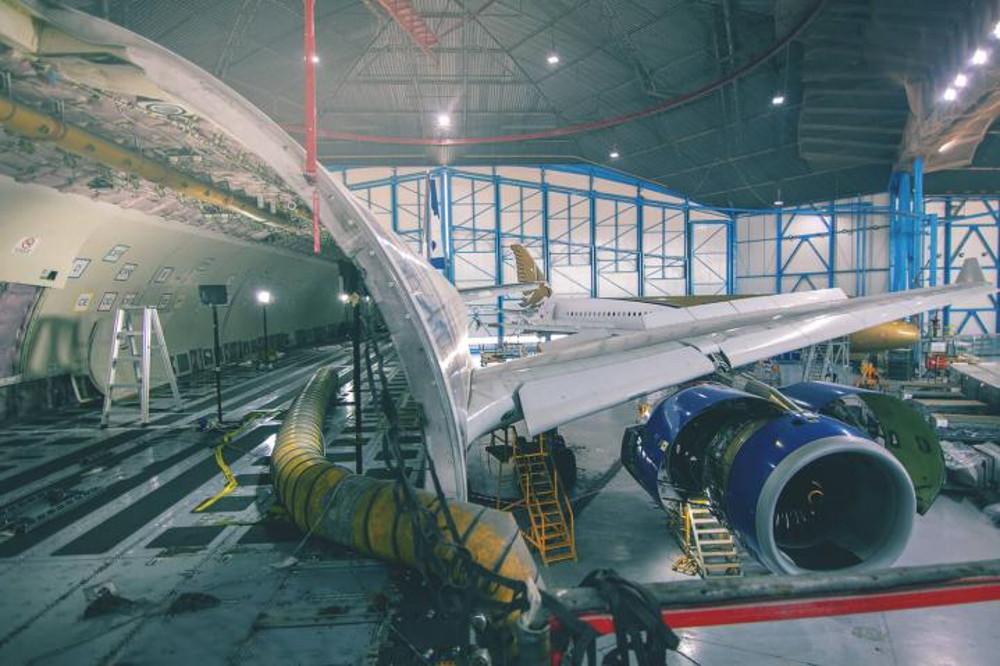
Joramco, the Jordanian MRO, has been undergoing a revamp over the past two years with a specific goal in mind. “We simply want to be the best, a world-class independent MRO,” stresses Joramco chief commercial officer Fraser Currie. “That’s what our transformation of the last two years has been about.”
A long-time ago the engineering unit of Royal Jordanian Airlines, the MRO is now controlled by Dubai Aerospace Enterprise, which owns 80% of Joramco while the airline still holds 20%.
Currie says he sees no special risk in being an independent MRO, rather an advantage. “I worked for an airline-affiliated MRO before, and we were always being asked whether we would give priority to our airline over third parties. Now we never have that issue. It’s very positive.”
Joramco still does about 10% of its work for Royal Jordanian’s fleet of Airbus A320s, Boeing 787s and Embraer RJs, but the airline is not committed to the MRO. Dubai Aerospace’s parent is the government of Dubai, which also owns flydubai and Emirates. Although Joramco works for both these carriers, again there is no long term commitment.
The MRO does airframe work for 13 national flag carriers and recently signed a regional-first contract with Ryanair, which will make the long flight east for 737 checks done on two parallel Joramco lines. Kenya Airways is a customer for 787 checks, and Currie expects to have a couple of 777 contracts to announce by mid-February.
Joramco has capacity to do a million man-hours of annual work in airframe hangars suitable for wide- and narrowbodies, plus back-shops. So far it does not repair components or engines. But its aim is to become a full-service MRO in ten years, so “you could see us doing components,” Currie explains.
Engines, on the other hand, are not on the horizon. When Joramco split from its parent airline, Jordan Airmotive, or Jalco, also split off as an independent engine MRO. Joramco has close links with Jalco, but there is no formal relationship.
Joramco has been growing at a controlled pace, with manpower up 15% in the last two years. Airframe work has increased from 600,000 man-hours per year to just under 900,000 man-hours over this period. The MRO specializes in Airbus A330s, A340s and A320s, but also does 737s and 777s and Royal Jordanian’s ERJ-175s and -190s.
For 2020, Joramco is looking to expand its business due to what Currie calls a capacity shortage in the market. “We are assessing growing our footprint in Jordan and outside Jordan if it makes sense.”
The recruiting pool for mechanics in Jordan is “strong,” Currie says, due to a “very strong aviation community.” The MRO has its own Part 147 academy, developed in partnership with Scotland’s Air Service Training. “There is a large pool to draw from in Jordan, we are not struggling like the U.S. or Europe. And there is no transient movement in Jordan, we are very static and secure.”
Operating in a duty-free zone at Amman Queen Alia International Airport, Joramco has no restrictions on part access. Jordan’s seaport at Aqaba also helps with logistics.
The MRO recently adopted EmpowerMX’s FleetCycle MRO software, and Currie is very happy with its planning capabilities. The new application will also enable Joramco to go paperless. “We are not there yet, but that is where we are headed.”
The Joramco CCO does not think Jordan needs any new MRO facilities. He says he gets very good support from OEMs, although some airframe OEMs struggle to keep up with orders for critical structural parts.





